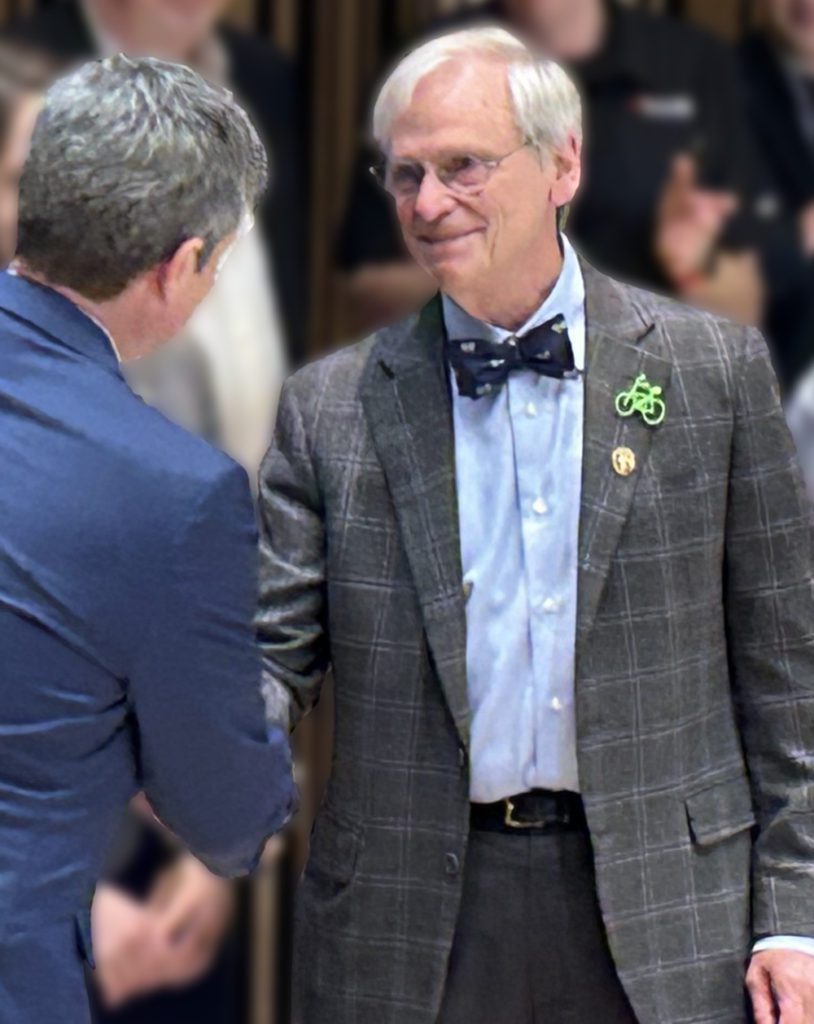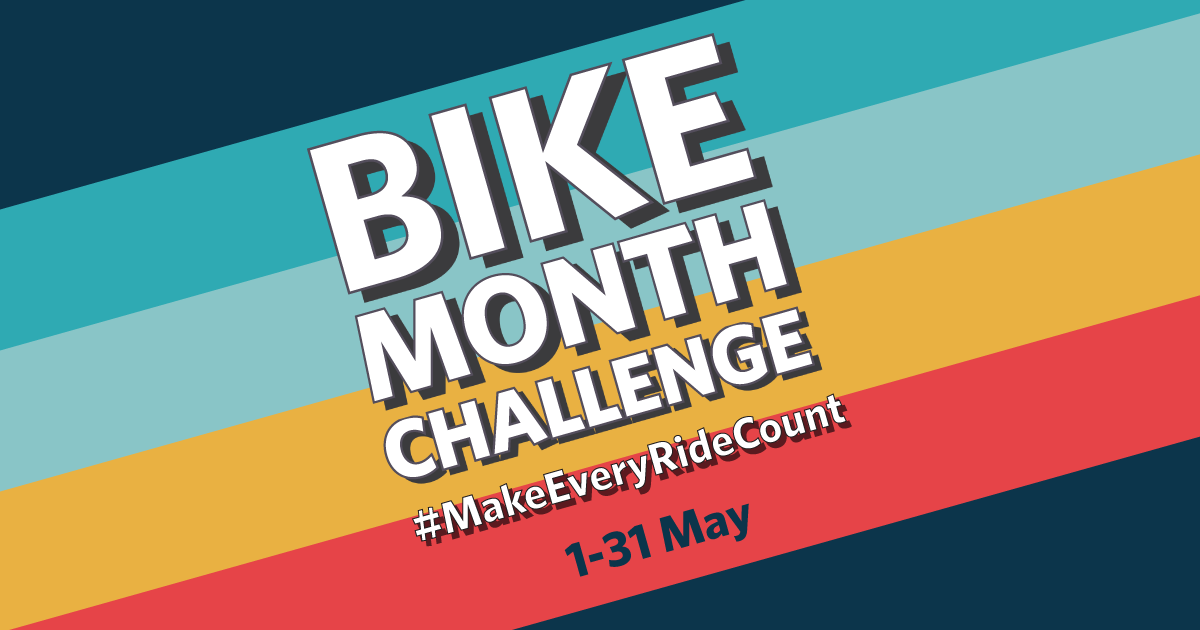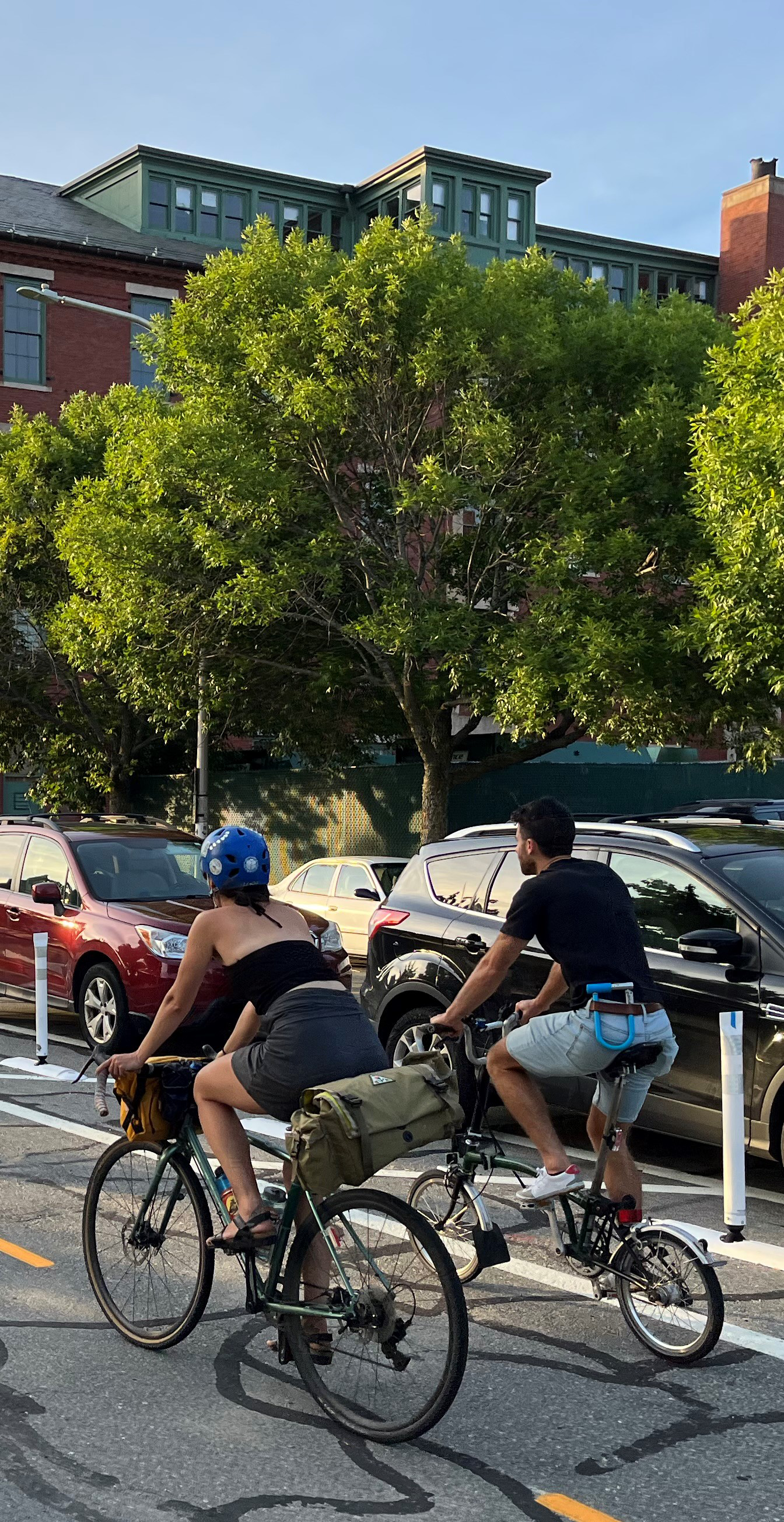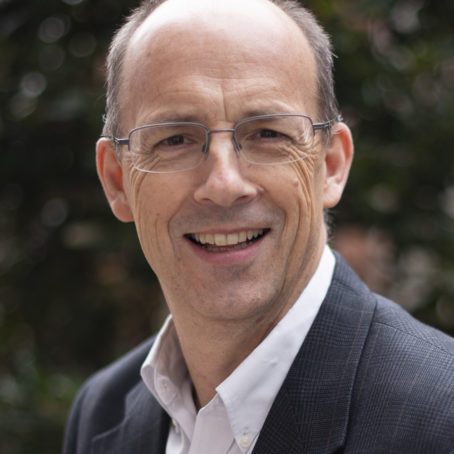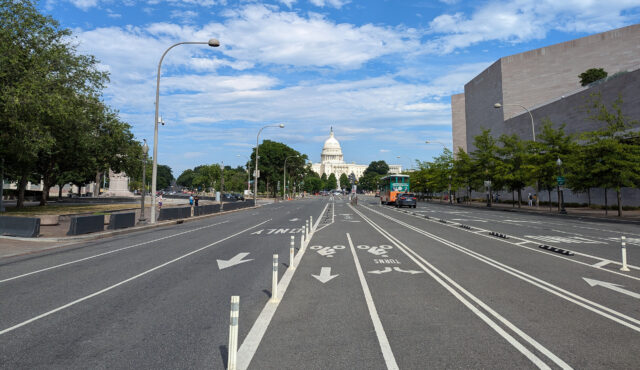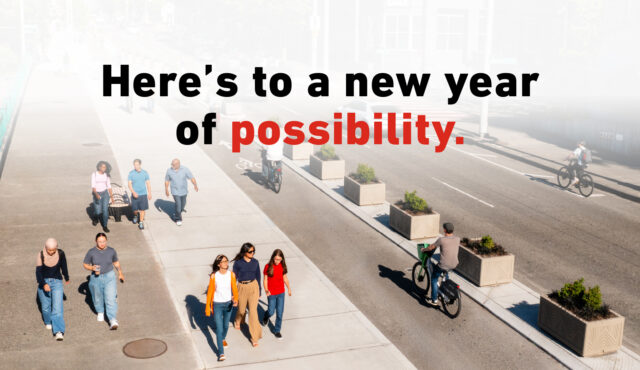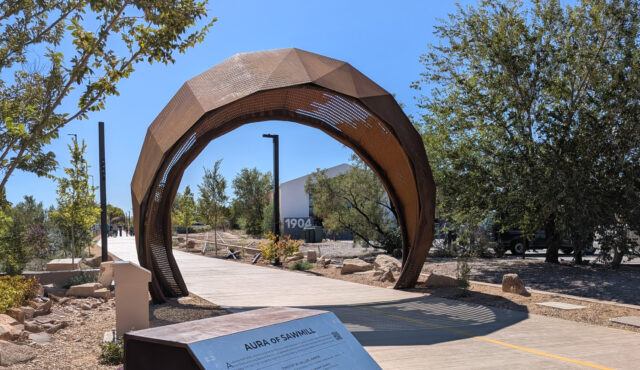In March I attended the National Bike Summit in Washington, DC, hosted by the League of American Bicyclists. The Summit was attended by several hundred state and local active transportation advocates from across the United States, as well as numerous Federal agency staff and national organizations based in Washington, DC.
Every year, the Summit allows me to reminisce with old friends and colleagues; make new connections; and hear the overlapping themes and priorities among transportation advocates, practitioners, and policymakers. As we kick off National Bike Month, I’m thinking back to my Summit experience this year to share some of these recurring themes and key moments.
Honoring Blumenauer’s Legacy
The Summit provided a poignant farewell and thank you to Congressman Earl Blumenauer (D-OR) who is retiring from Congress at the end of this year. He was elected to the Oregon state legislature in 1972, the Multnomah County Commission in 1978, the Portland City Council in 1986 where he served 10 years as Commissioner of Public Works, and finally the U.S. House of Representatives in 1996.
Congressman Blumenauer has been a tireless advocate for cycling, walking, transit, housing, environmental, land use, and air quality issues. His departure will leave a big hole in the national cycling movement. I was honored to be able to say a few words to the Summit crowd about his legacy.
Harnessing the Power of data
Data collection was a prominent theme throughout the event. For National Bike Month, the Atlanta-based Love to Ride launched a #MakeEveryRideCount initiative to encourage people biking to rate segments of roads they ride in real-time. This crowdsourced data will build a better picture of what makes riding stressful, and where.
The Next Transportation Bill
Many Summit speakers noted the unprecedented flow of funding towards safety, Complete Streets, and more multimodal transportation projects. Veronica Davis was particularly pointed in urging attendees to seize this moment of opportunity, be bold, and anticipate a potential backlash and staunch defense of the status quo.
Federal Highway Administrator Shailen Bhatt was funny, candid, and hopeful that genuine change is being institutionalized within the FHWA. He had the pleasure of announcing the new $45 million Active Transportation Infrastructure Investment Program, which he was quick to describe as a “down payment” on what is needed.
The League’s agenda was heavily focused on initial steps toward the next transportation bill, which the next Congress must pass before the end of September 2026. Conversations centered around the ways in which the current legislation can be refined in the future to facilitate more spending on active transportation, especially for safety projects.
Inspiring Inclusivity
On a final note, I was inspired to observe that the National Bike Summit now comprises one of the most inclusive audiences of all the transportation events I’ve attended over the years. This is really encouraging for the future of the movement and our collaborative efforts to create a more inclusive transportation system. Kudos to the League for putting in the work to make that happen, and kudos to everyone who attended the Summit for the thoughtful presentations and impactful work you are all doing.
